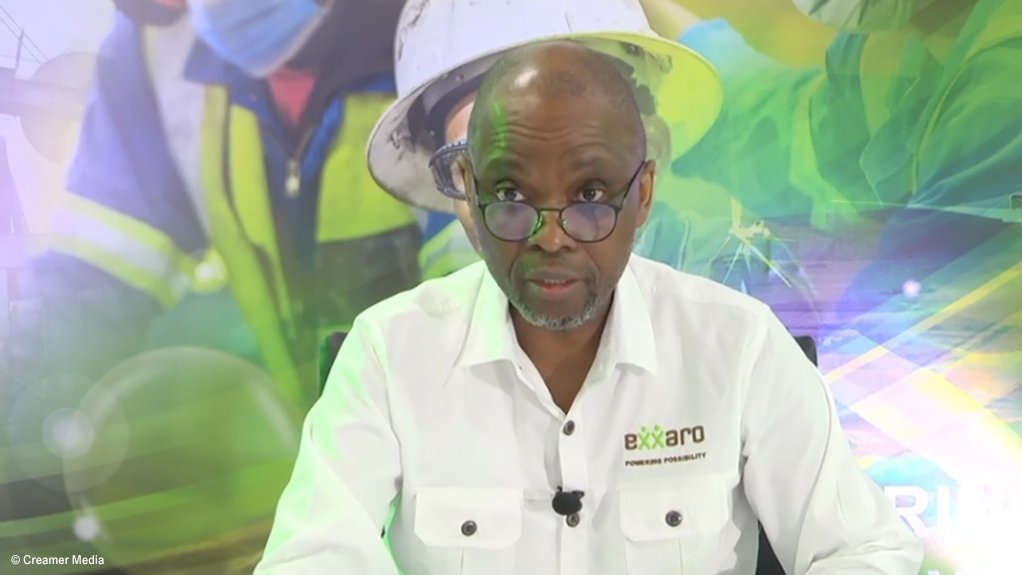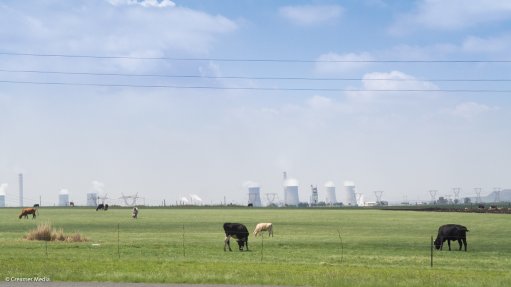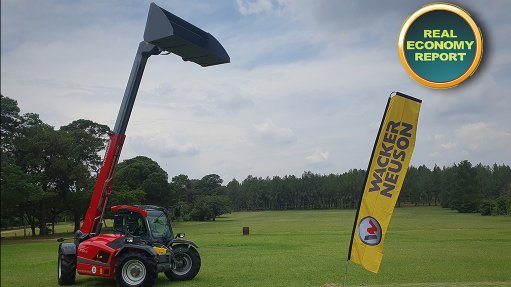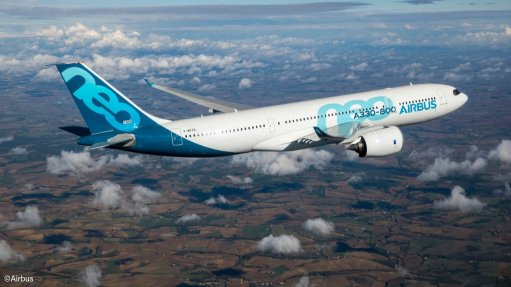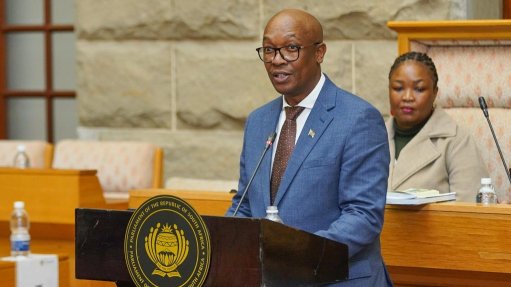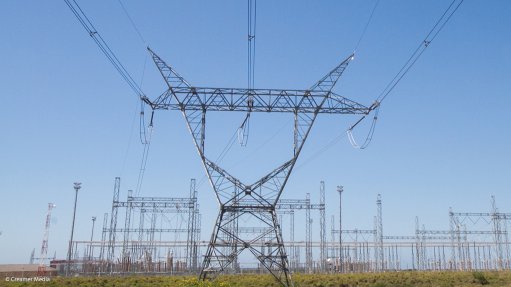B20 task force chairs share policy, actionable recommendations made so far
To encourage transparency and spotlight the voices leading the B20 South Africa 2025 agenda, Business Unity South Africa (Busa) president Mxolisi Mgojo and B20 South Africa Sherpa Cas Coovadia on June 24 hosted an inaugural media roundtable, marking the first in a series of quarterly engagements.
The inaugural session introduced five of the B20’s strategic leadership voices and provided insights into the priorities shaping the G20 business community’s work under South Africa’s presidency this year.
The B20 leadership includes Standard Bank group CEO and B20 finance and infrastructure task force chairperson Sim Tshabalala, Industrial Development Corporation chairperson and B20 trade and investment task force chairperson Busi Mabuza and Deloitte Africa CEO and B20 integrity and compliance task force chairperson Ruwayda Redfearn.
Mgojo deems the B20 not only South Africa’s milestone, but Africa‘s opportunity to shape global economic policy.
The G20 countries represent 85% of global GDP, 75% of global trade and two-thirds of the world’s population. Accordingly, the B20 is the official business voice to the G20, crafting actionable policy recommendations for inclusive growth.
South Africa has been the only African country member of G20 since 1999.
Mgojo confirms that currently eight task forces are developing evidence-based solutions on trade, energy, digital inclusion, climate and more.
These are focused on measurable impact and not just discussion, with the aim of policy recommendations evolving into actionable items implemented by global entities and governments.
Commenting on Africa’s unique value, Mgojo said the continent was central to many of the world’s challenges, including critical minerals supply, renewable energy, food security and the world’s youngest workforce that is emerging.
“We must shift the narrative from potential to progress and ensure growth benefits all.
“Key priorities Africa should be focusing on are inclusive growth, advancing the African Continental Free Trade Agreement and regional value chains to unlock Africa’s $3.4-trillion market, bridging economic divides in sub-Saharan Africa where 400-million people are in poverty, and global collaboration – in a fragmented world, Africa can be a bridge to balance East/West tensions while securing supply chains.”
He added that private-public partnerships and innovation were essential, including leveraging renewable energy for a just energy transition, as well as digital inclusion to close the gap between informal small businesses and the economy.
Mgojo pointed out that there was a real call to action, urging all stakeholders to amplify Africa’s voice and hold leaders accountable. He believed the B20 Summit that will be held in Johannesburg in November was just the beginning – “we are building a legacy of inclusive prosperity”.
WORK IN PROGRESS
Redfearn emphasised that the task force on integrity and compliance was vital, especially since Africa lost an estimated $120-billion every year to corruption.
A large portion of these funds are borrowed from international lenders for development, Redfearn explained. She further cites UN office on drugs and crime data suggesting that corruption consumes nearly 25% of the African continent’s GDP yearly.
While estimates and metrics may vary across international organisations, the message is the same – corruption is a major impediment to economic growth in Africa, stifling both domestic and foreign investment.
On a micro level, corruption disproportionately affects the poor, while it weakens institutions, competition and the rule of law on a macro level.
Hence the importance of the task force on integrity and compliance’s efforts, which are focused on encouraging responsible use of technology and anti-corruption measures, strengthening anti-corruption measures and accountability in climate finance systems and amplifying collective action and integrity standards for inclusive growth.
With accelerating climate events, economic volatility and rapid digitalisation, the need for ethical, transparent and cooperative governance is more urgent than ever, given increasingly complicated risks that can widen inequality and limit access to opportunity for shared prosperity.
Moreover, Tshabalala said Africa was abundantly blessed with natural and human resources that could drive the next wave of growth worldwide. For example, Africa houses 50% of global cobalt resources, 47% of manganese resources and 22% of natural graphite resources, as well as excellent wind and solar resources that remain underused for revenue collection.
He explained that, to unlock more of this value, the continent needed the right business environment, appropriate social and environmental regulation and the necessary infrastructure.
“Our capacity to drive the world’s growth, depends largely on our ability to maintain and expand our infrastructure – including rail and port infrastructure.
“According to data from the African Development Bank, Africa needs to spend about $170-billion a year to meet its infrastructure needs. Currently, half of the required amount is being mobilised, leaving an infrastructure funding gap of $85-billion.”
Therefore, the core mandate of the B20 finance and infrastructure task force is to work on ideas for the G20 and other key stakeholders to help close this massive infrastructure gap.
To that end, the task force had devised recommendations on supporting the expansion of investable infrastructure projects, improving access to capital by increasing the availability and effectiveness of public, private and philanthropic investment, and enhancing the flow of funds between investors, projects and the wider community, Tshabalala stated.
The task force’s proposals, which were assisted by thousands of written inputs from institutions and experts globally, have included long-term policy proposals and short-term actions to drive meaningful change.
One example of the task force’s long-term policy recommendations was greater cooperation and collaboration among infrastructure programmes both within and between countries.
This involves prioritising strategic sectors such as energy and digital infrastructure, which hold high potential for impact and catalysing development in other areas, as well as removing bureaucratic hurdles related to project preparation.
“We believe the ideas in our upcoming policy paper have the potential to significantly enhance infrastructure project investability and coordination, which can, in turn, help garner public and private capital and boost infrastructure development,” Tshabalala said.
Mabuza shared her task force was focused on amplifying the voice of business by helping shape a collaborative and rules-based trade and investment environment that supported marginalised communities and groups, as well as small-, medium-sized and microenterprises.
She highlighted current global challenges as being rising protectionism, Africa’s marginalisation in the economic sphere and climate change. “We depend on a predictable trade environment and investment flows to drive industrial development, job creation and long-term prosperity for people.”
The trade and investment task force has focused on calling for the promotion of stability in global trade by de-escalating the tariff crisis and through much-need multilateral reform. She cited figures by the World Trade Organisation estimating that new tariff regimes and retaliations may reduce global trade by 0.2%, or $50-billion.
The task force’s recommendations are centred on restored confidence in a multilateral trade system and greater certainty, and include a call for the creation of a new trade and investment deal for Africa as a largely untapped source of trade and growth.
Article Enquiry
Email Article
Save Article
Feedback
To advertise email advertising@creamermedia.co.za or click here
Comments
Press Office
Announcements
What's On
Subscribe to improve your user experience...
Option 1 (equivalent of R125 a month):
Receive a weekly copy of Creamer Media's Engineering News & Mining Weekly magazine
(print copy for those in South Africa and e-magazine for those outside of South Africa)
Receive daily email newsletters
Access to full search results
Access archive of magazine back copies
Access to Projects in Progress
Access to ONE Research Report of your choice in PDF format
Option 2 (equivalent of R375 a month):
All benefits from Option 1
PLUS
Access to Creamer Media's Research Channel Africa for ALL Research Reports, in PDF format, on various industrial and mining sectors
including Electricity; Water; Energy Transition; Hydrogen; Roads, Rail and Ports; Coal; Gold; Platinum; Battery Metals; etc.
Already a subscriber?
Forgotten your password?
Receive weekly copy of Creamer Media's Engineering News & Mining Weekly magazine (print copy for those in South Africa and e-magazine for those outside of South Africa)
➕
Recieve daily email newsletters
➕
Access to full search results
➕
Access archive of magazine back copies
➕
Access to Projects in Progress
➕
Access to ONE Research Report of your choice in PDF format
RESEARCH CHANNEL AFRICA
R4500 (equivalent of R375 a month)
SUBSCRIBEAll benefits from Option 1
➕
Access to Creamer Media's Research Channel Africa for ALL Research Reports on various industrial and mining sectors, in PDF format, including on:
Electricity
➕
Water
➕
Energy Transition
➕
Hydrogen
➕
Roads, Rail and Ports
➕
Coal
➕
Gold
➕
Platinum
➕
Battery Metals
➕
etc.
Receive all benefits from Option 1 or Option 2 delivered to numerous people at your company
➕
Multiple User names and Passwords for simultaneous log-ins
➕
Intranet integration access to all in your organisation



